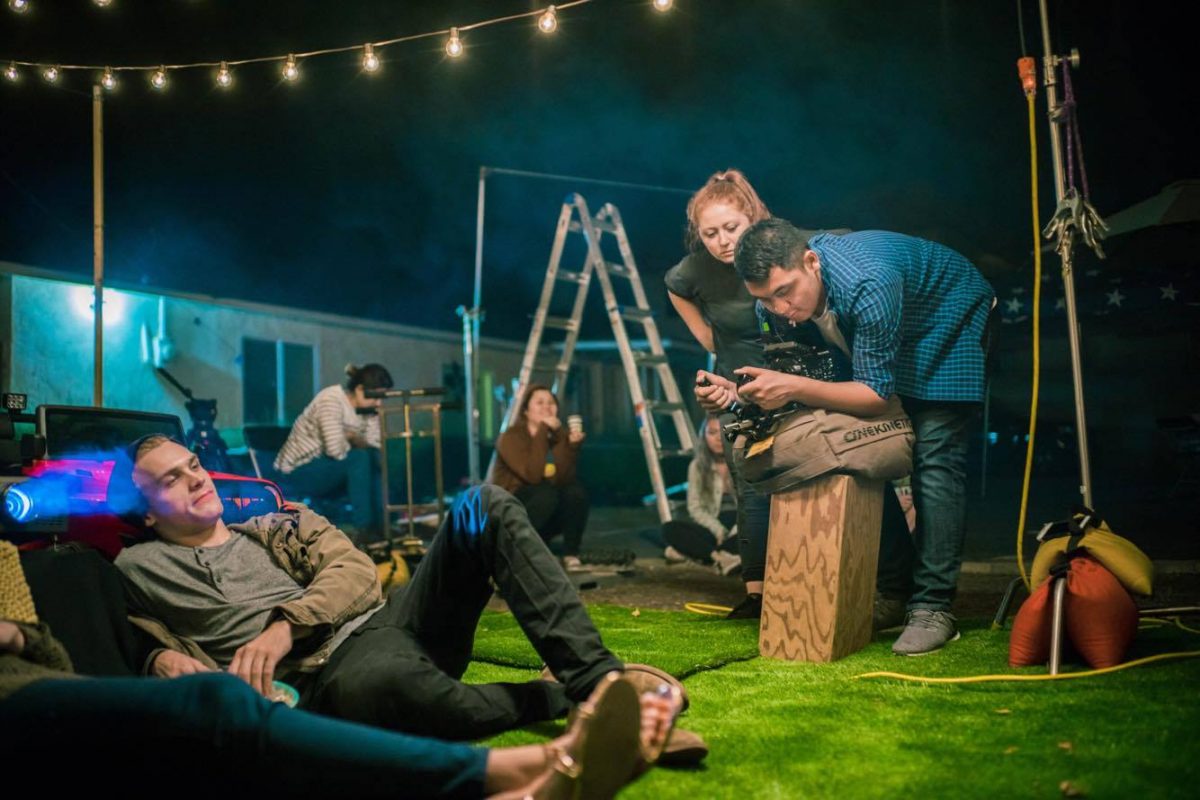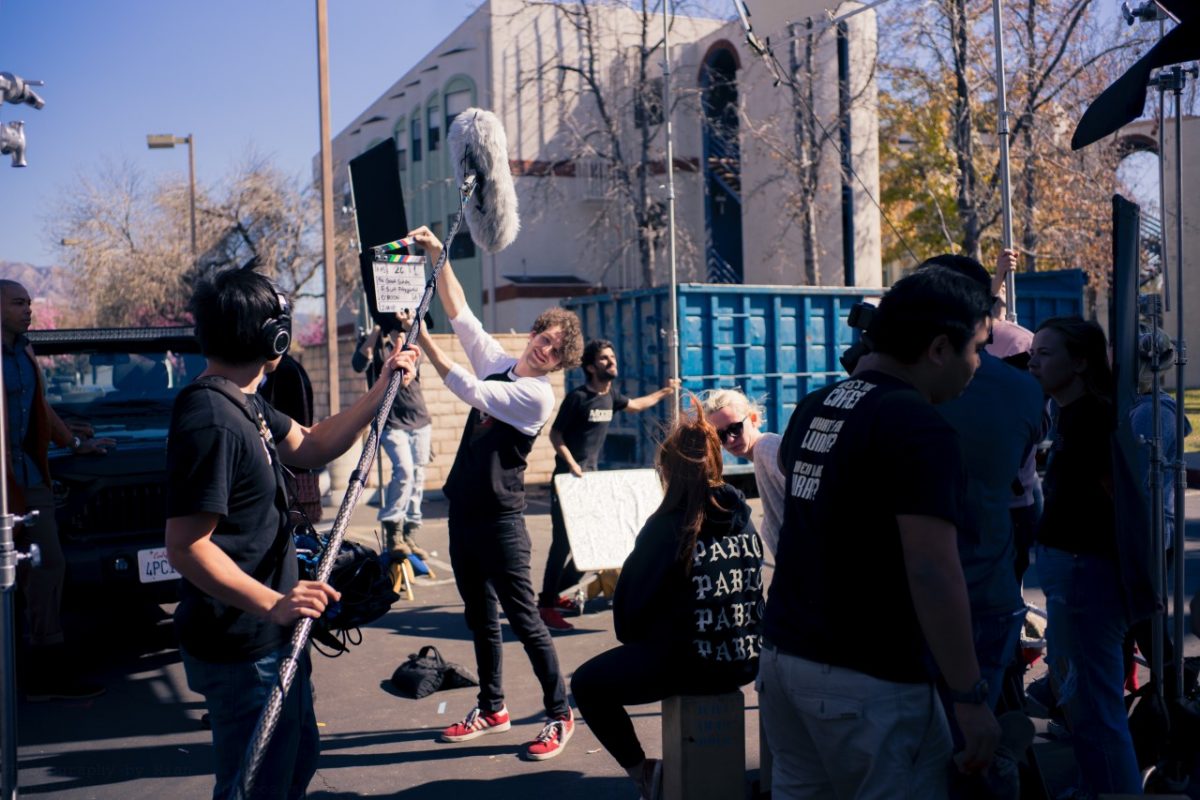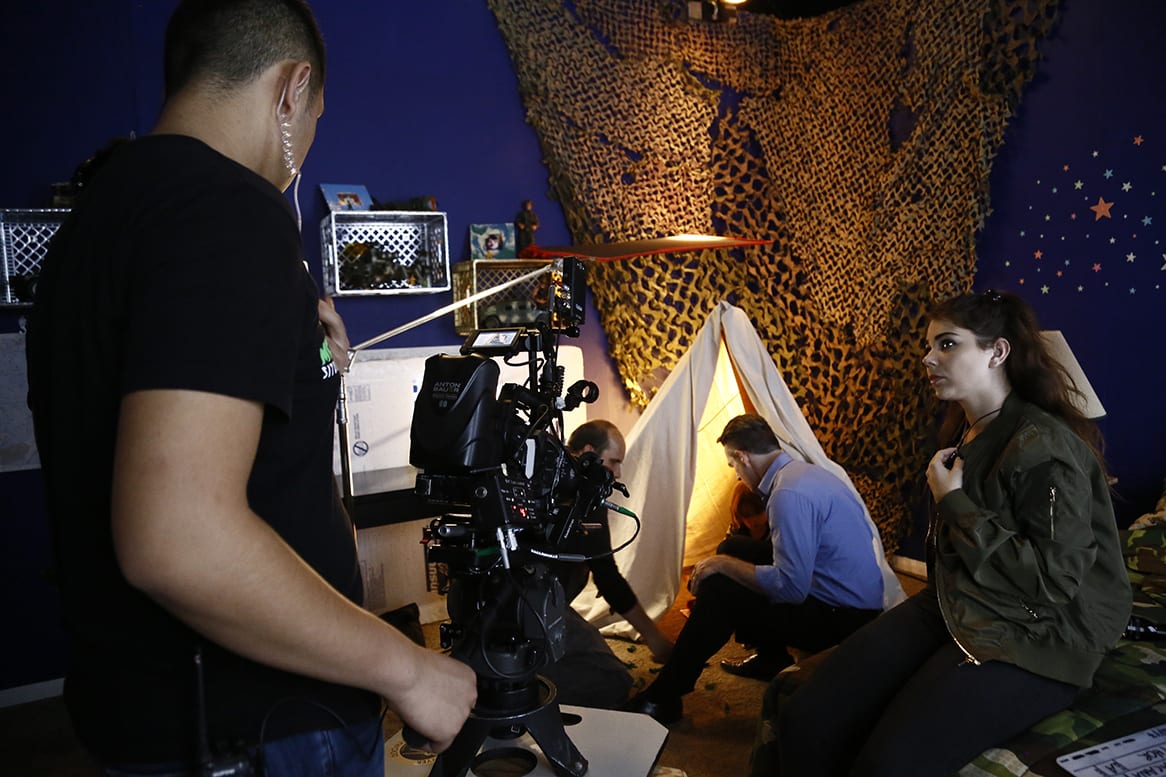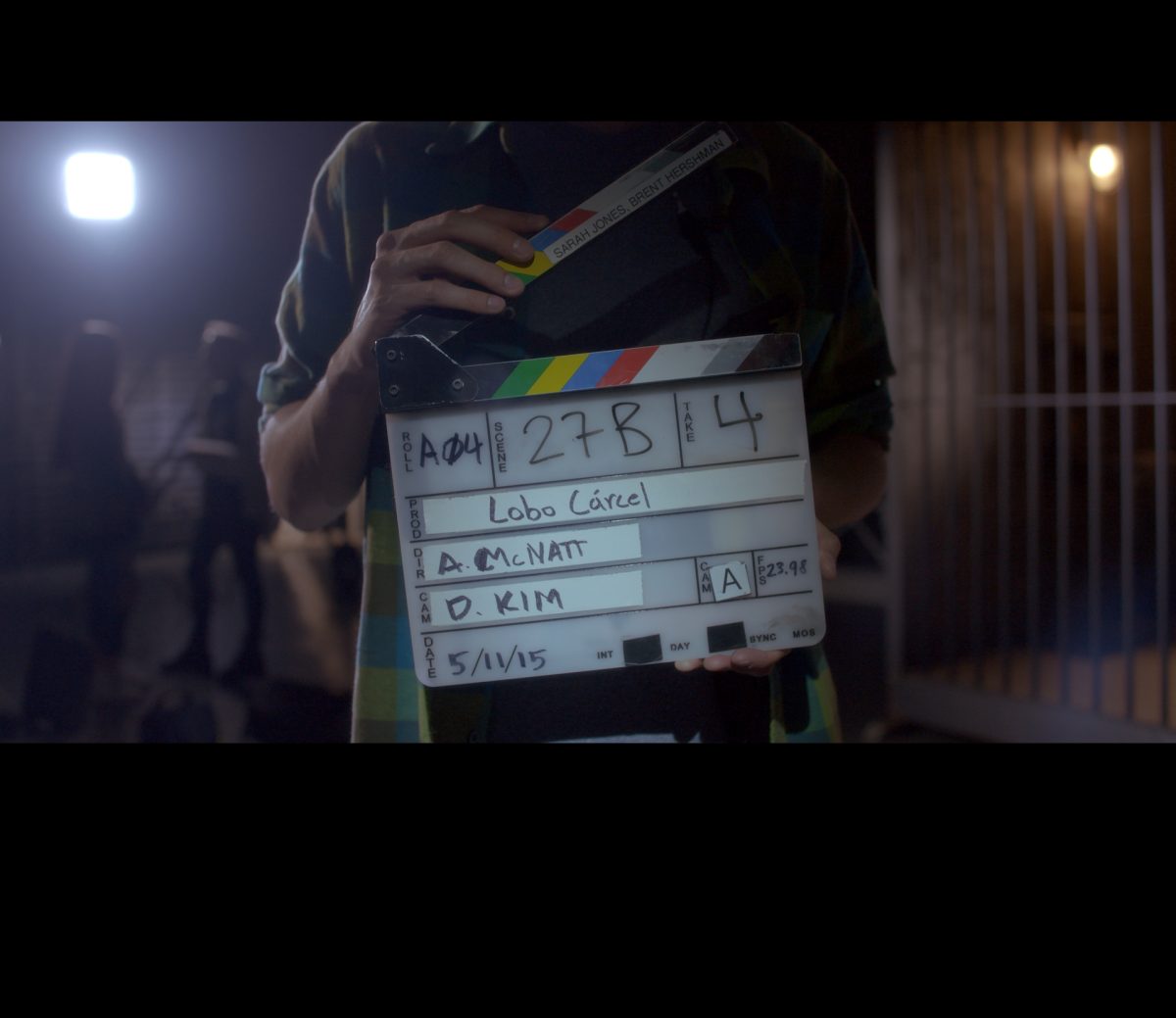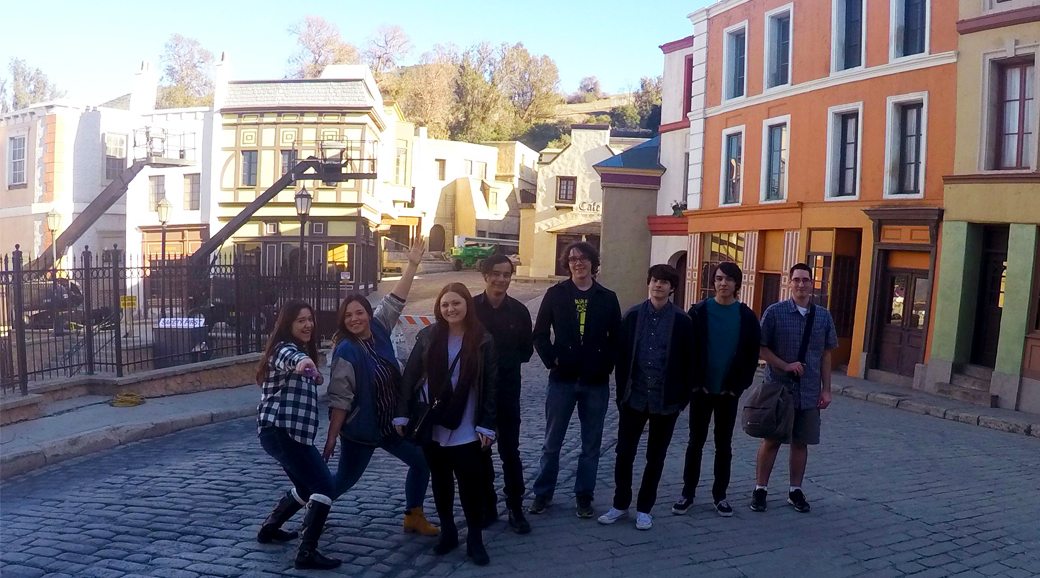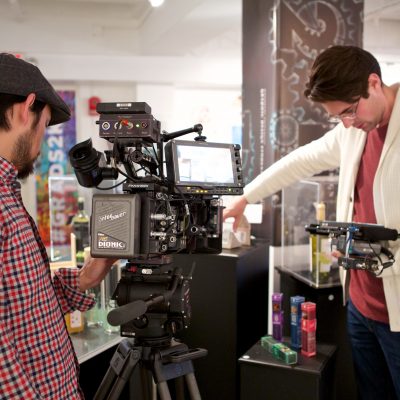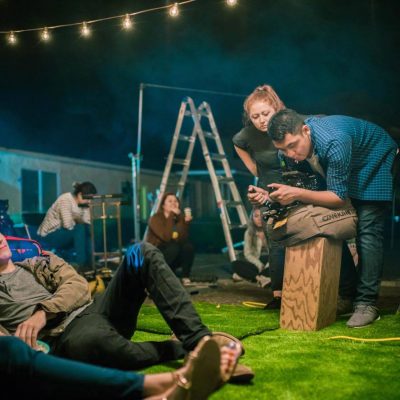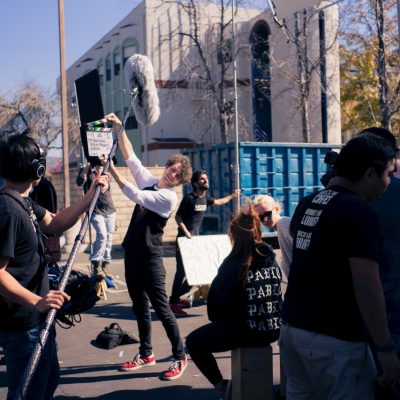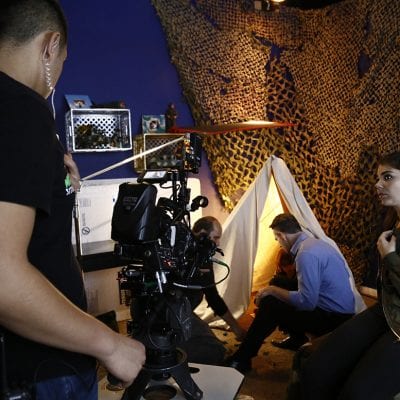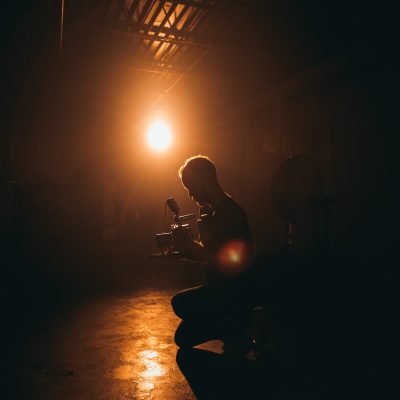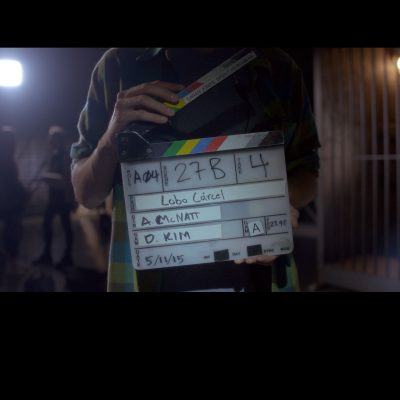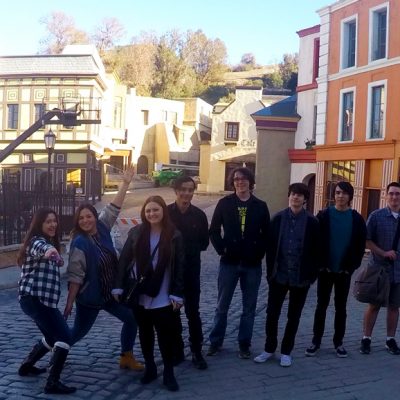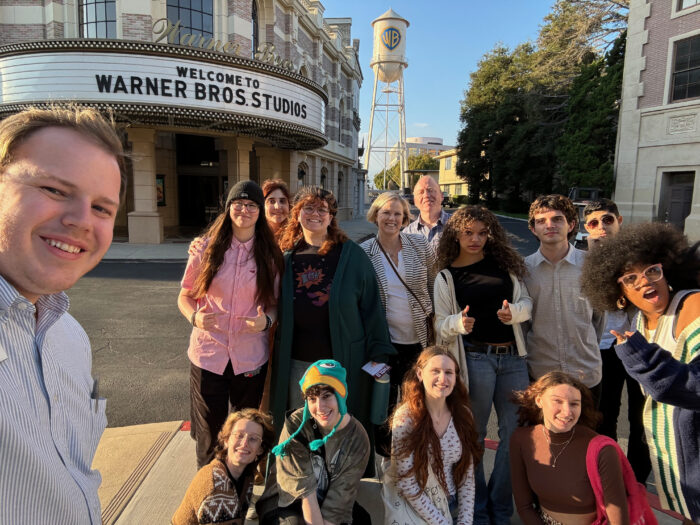School of Media : Culture : Design
Filmmaking, BA
Bachelor of Arts (BA) in Filmmaking
Woodbury’s Bachelor of Arts (BA) in Filmmaking is a professional liberal arts degree that places emphasis on the study of film through a focus on the entertainment industry. Our students engage with film from multiple angles: as an artform for communicating ideas, as a business for selling cultural products, and as a technology for creating memorable moving images. It is the ideal degree for students who know they want to be in the business of making films, but don’t necessarily want to work behind the camera.
Apply Request Information Take a TourCreate Your Future
The BA in Filmmaking integrates historical study with practice-based education in a variety of filmmaking disciplines. The program shares a common foundation with the BFA in Filmmaking during the first two years of study. All students receive a broad introduction to the concepts, tools, and techniques of filmmaking by taking introductory classes like Film Production, Screenwriting, Editing, Sound, Film History, and Media Industries. Then, BA students focus their upper-division studies on the history, aesthetics, and industry of moving image media by taking advanced classes like Producing and Entertainment Marketing and choosing from elective course offerings such as Film Genres, History of Hollywood, Media & Social Change, and more.
In addition, as part of our program’s focus on the business of the entertainment industry, all students gain hands-on professional experience by completing an internship as part of their academic journey. Students intern at film studios, on television sets, for agents and managers, in marketing and publicity offices, and they use these experiences as steppingstones for successfully transitioning into any number of careers in the entertainment industry.
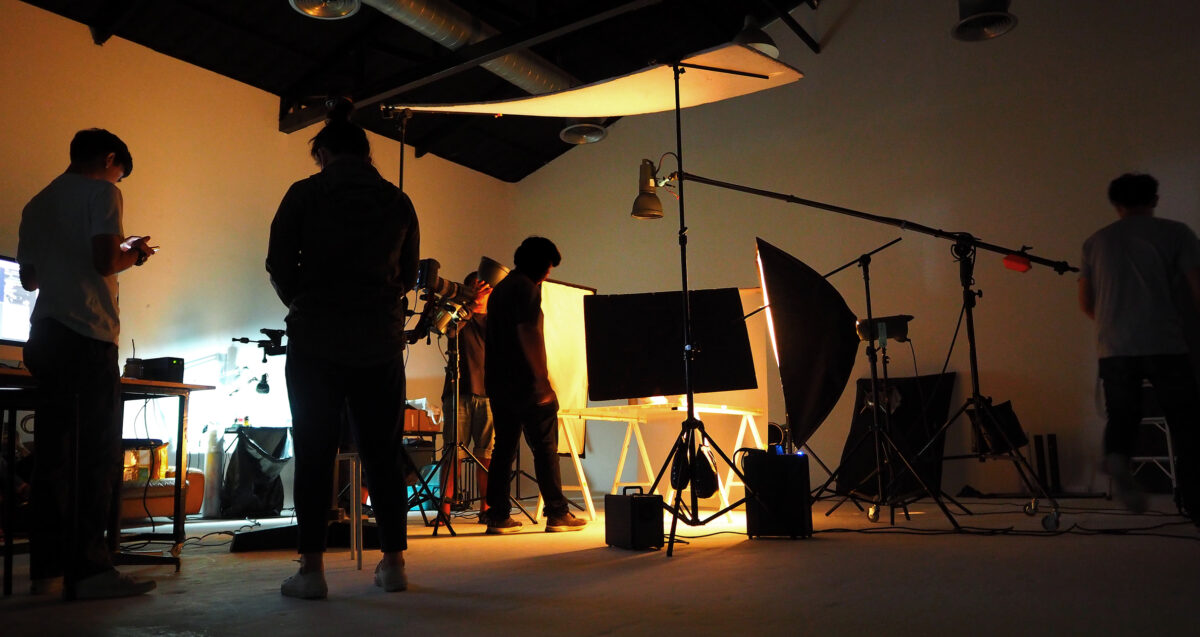
Internships & Careers
Career Opportunities
Our students have interned with the following companies:
Internships are a required component of the BA in Filmmaking.
Co-curricular Opportunities
WU Radio
WU Radio, our campus internet station with a local focus and a global audience, enables Woodbury students, alumni, faculty and staff to get hands-on experience with broadcasting in the digital era.
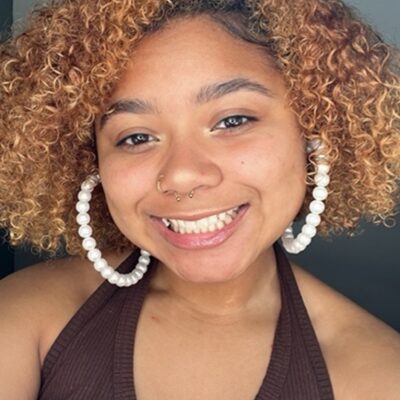
Alumni Spotlight
Alumna (BA, 2023)
Ashlee "Jordyn" Jackson
Born and raised in L.A., Jordyn Jackson has lived in the Burbank area since middle school — just around the time she was developing a love for the world of radio. Jordyn soon realized that choosing a college major related to communications was the best path she could take to surround herself with career opportunities in the field of radio. Find out why she chose to pursue her career dreams at Woodbury University and how the connections she made here have led to amazing opportunities at iHeart Media and beyond!
Facilities
- 4,000 ft. soundstage
- 45-seat (state-of-the-art) screening room
- Post-production facilities
- Small class size
- 25-acre campus for various locations
- Campus radio station
Filmmaking (BA) Courses
Courses in WU Filmmaking are organized around four key competencies: production, industry, history, and professionalization. In the first two years, students in the BA and BFA share the same curriculum, where they will learn the basic concepts, tools, and techniques of filmmaking. In the third and fourth years, BA students will focus their studies on the history, aesthetics, and industry of moving image media by taking advanced classes in producing, marketing, and media studies.
FILM 110: Film Production I – 3 units
Prerequisites: none
This is an introductory hands-on media production course that provides solid grounding in the technical and creative aspects of narrative filmmaking. Students will conceptualize and develop individual and group projects throughout the pre-production, production, and post-production processes. Students will become familiar with the production process, cameras, lighting equipment, and more. Studio
FILM 115: Cinematography – 3 units
Prerequisites: FILM 110, Film Production I
This course is an introduction to both the creative and technical aspects of cinematography. Students will become familiar with the operation of camera, grip, and lighting equipment as well as learn techniques to aid in visual decision-making. Through individual and group exercises, students will stop into the role of the cinematographer as well as other crew positions. Studio.
FILM 140: Sound – 3 units
Prerequisite: FILM 110, Film Production I
Throughout the semester, students will be required to record sound from the production process and carry it through to post-production. Students will learn how to capture production sound utilizing different microphones and capture devices, as well as the basic techniques for recorded sound’s transition to post-production work to enhance the immersive experience of film. Studio.
FILM 200: Introduction to Screenwriting – 3 units
Prerequisites: WRIT 113, First-Year Academic Writing
This course explores the process of writing a narrative script through lectures, readings, writing exercises, and of course, a lot of writing. Students will learn important screenwriting basics, including standard script formatting. They will develop ideas into loglines, treatments, and short film scripts. Class emphasis is on student work, as well as on the development of the technique and craft necessary to shape it. Lecture.
FILM 210: Film Production II – 3 units
Prerequisite: FILM 110, Film Production I
This course is designed to assist the growth of students in visual storytelling. Focusing on the short film, this class will explore characters, story arcs, acts, style, and more. The workshop class will provide students with in-class time to create films. The course will also require that they work outside of class to finish assignments or projects. While discussing storytelling, the class will demand that students collaborate with others to find the best idea that suits the needs of short films they craft. This will require time and effort, respect for the process, and strong participation. Studio.
FILM 215: Directing
3 units
Prerequisite: FILM 110, Film Production I
This course explores the collaborative process between the director and actors, the communication between them, and the shaping of performances. Students will choose scenes and cast, rehearse, and present scenes in class. This is a workshop-style class that will require students to direct assigned scenes, share critiques, and receive direct feedback. Studio.
FILM 220: Editing
3 units
Prerequisites: none
Editing is an essential part of the filmmaking process, and in this class, students will gain an understanding of the principles and techniques that editors use to tell stories along with the technical aspects related to the editing process and post-production. Lecture.
MDST 237: Media and Identity – 3 units
Prerequisites: WRIT 113, First-Year Academic Writing
This course examines the relationship between mediated forms of communication and the formation of individual and social identities, with a particular emphasis on identities related to race, class, gender, ethnicity, and sexuality. Through a combination of lecture, screenings, and discussion, students will examine the ways in which popular media serves to construct, maintain, reproduce and/or challenge the patterns of representation that shape our social and cultural understanding of identity. Lecture.
MDST 241: Media Industries – 3 units
Prerequisites: none
At the core of the media industries is a fundamental tension between art and commerce; creative products are generated within a business environment that is focused on keeping costs down and profits high. This course will introduce students to the institutional, economic, technological, and regulatory factors that shape the circulation of cultural objects within the entertainment media industries. Through a combination of lecture and discussion, students will come to understand the media industries’ key players, challenges, hierarchies, and debates. Lecture.
FILM 401: Entertainment Marketing – 3 units
Prerequisites: WRIT 113, First-Year Academic Writing; LSCI 105, Information Theory and Practice
This is a course for future producers, directors, creative personnel, and marketing and distribution executives. This class addresses the marketing and distribution of filmed entertainment, and the specific business issues associated with producing and releasing movies and television programing amidst the array of new digital and streaming platforms. Through discussion and case studies, the course will instruct individuals in the kind of business and economic decisions that confront filmmakers and marketing executives. The curriculum is also designed to develop and apply business and marketing strategies that can aid in the exploitation of new media opportunities. This course will closely examine the novel challenges confronting the advertising, publicity, and promotion disciplines that comprise entertainment marketing. Lecture.
FILM 402: Producing – 3 units
Prerequisites: WRIT 113, First-Year Academic Writing; LSCI 105, Information Theory and Practice
This class will explore the duties and responsibilities of the producer. The producer is the first one on and the last one off the project. The course will cover how to find and option material, how to attach talent to your project, how to pitch, and how to find places to do so. This class is designed to give students the confidence needed to move forward into the world of producing. Lecture.
FILM 1__: Intro to Film Art & Style – 3 units
Prerequisites: none
Films can be understood from a number of perspectives: as technology, as business, as entertainment, as art, and as a socio-cultural artifact that reflects the cultural conditions under which they are produced and received. This course emphasizes the study of film form and style by exploring topics such as narrative, mise-en-scène, visual and sound design, genre, and authorship. The goal of this course is to provide students with a set of basic tools for understanding and communicating how film form relates to meaning.
FILM 101: Film History I – 3 units
Prerequisites: none
This course examines the technological, social, cultural, and aesthetic dimensions of cinema and the moving image from its inception through the 1940s. Lectures, screenings, readings, and discussions will explore the formal diversity of international cinema and investigate the impact of the global circulation of films, filmmakers, and film culture. Lab.
FILM 102: Film History II – 3 units
Prerequisites: none
This course covers the period from 1950 to the present. Through lectures, discussions, and analyses of screenings of films and film clips, this course will offer a chronology of the development of both the artistic elements in the narrative motion picture—exploring the film story as a natural progression of the storytelling tradition that has shaped scripture, poetry, drama, and the novel throughout human history—and as a globe-spanning business that has reshaped our perceptions of cultures, ethnic groups, and economic systems. Lab.
FILM 351: Career Development – 3 units
Prerequisite: none
This course will instruct students on the fundamentals of finding and building a career in entertainment. Subjects will include researching and applying for internships and jobs, cover letters and résumés, company expectations for workers, and networking skills. Lecture.
FILM 4__: BA Thesis I – 3 units
Prerequisite: Senior standing in the program
This course is the first semester in the development of a student-directed, multimedia senior thesis project with a focus on the history, aesthetics, and/or industry of moving image media. With guidance from the instructor, students are expected to identify an area of interest, engage in independent research and writing, and determine how to integrate media production (there are a range of possibilities here including short video essays or media-enhanced research papers). By the end of the semester, students will have completed a proposal for an individual capstone project. Lecture.
FILM 4__: BA Thesis II – 3 units
Prerequisite: Senior standing in the program
This studio-based course is the second semester of the student-directed senior thesis project. Students execute plans developed in Senior Thesis I, completing all research and related media production. Each project must incorporate both written and multimedia components. Students meet weekly to workshop ideas and present works-in-progress, culminating in a final presentation of their work at the MADE at Woodbury Festival. Studio.
MDST 490 – 3 units
Prerequisite: Permission of the chair
Students participate in an on-the-job practicum in commercial settings in media, design, entertainment, and marketing firms. Work experience is complemented by academic requirements specified in a contract with the faculty advisor.
Advanced Film History Electives
MDST 300: Censorship
3 units
Prerequisites: WRIT 113, First-Year Academic Writing; LSCI 105, Information Theory and Practice
This course will explore the history of censorship in American pop culture, with a particular emphasis on the film and television industries. Through a combination of lecture, screenings, and discussion, students will examine the ways in which pop culture has become a battleground in the culture wars around violence, sex, race, religion, and politics. Lecture.
MDST 338: History of Documentary
3 units
Prerequisites: WRIT 113, First-Year Academic Writing; LSCI 105, Information Theory and Practice
This course will survey the international history of documentary film and video with particular emphasis on the relationship between nonfiction practices and questions of truth, knowledge, history, politics, and ethics. Throughout the semester, we will investigate how the traditional concerns of documentary theory such as realism, authenticity, and commitment to public discourse have been redefined in contemporary times. Lecture.
MDST 341: Film Genres
3 units
Prerequisites: WRIT 113, First-Year Academic Writing; LSCI 105, Information Theory and Practice
This course is an historical and theoretical survey of film genre as a stylistic and narrative device. It will focus on one or more genre as a case study for exploring genre’s significance in the historical, cultural and economic fabric of the film industry. Lab.
MDST 342: Film Noir
3 units
Prerequisites: WRIT 113, First-Year Academic Writing; LSCI 105, Information Theory and Practice
This course explores the origins and evolution of the film noir, from its literary beginnings to its contemporary manifestations. Students will look at the loosening of censorship structures that allowed for noir’s emergence in Hollywood, the politics of post-war America that gave context to the films’ bleak cynicism, and the films’ distinctive style and character archetypes as they work to develop a better understanding of the genre’s significance within the history of cinema. Lab.
Advanced Producing Electives
MDST 306: Radio in the Age of the Internet
3 units
Prerequisites: WRIT 113, First-Year Academic Writing; LSCI 105, Information Theory and Practice
An overview of the theory and technique of radio, as both a terrestrial and internet medium, with a focus on the role of radio in positively transforming communities. The course begins with a hands-on introduction to industry-standard broadcast production tools (focusing on Adobe Audition). Coursework will include readings and discussions of theoretical and historical scholarship about radio, podcasts, internet video, and television, as well as producing lab-based original broadcast content to be shared in class and online. Student projects for this course will include programs informed by regular interactions with members of the community (including interviews), access to audio archives, script writing, investigative research, and more. The final project will be a collaboratively created, fully formed radio or podcast episode, with the intention of airing the student-produced programs on Woodbury radio. Lecture.
FILM 360: TV Writing and Producing
3 units
Prerequisites: WRIT 113, First-Year Academic Writing; LSCI 105, Information Theory and Practice
Arguably, no art has had a greater impact on our culture in the last century than television. After developing a basic understanding of the art and history of television’s evolution, students will write in each of the four most popular television styles: procedural, western, genre, and comedy. Because of a TV writer’s unique position as producer, students will also examine those responsibilities and their impact on story and production. Lecture.
FILM 400: Pitching
3 units
Prerequisites: WRIT 113, First-Year Academic Writing; LSCI 105, Information Theory and Practice
This course focuses on the art and history of pitching material for film, tv, and media productions through comprehensive examination of the business of entertainment. The class also explores the history of entertainment business plans, mergers, new approaches, and the changing nature of such proposals. This course in the business of entertainment is for producers, directors, development personnel, aspiring media executives, and those who are planning, developing, and executing media ventures and projects.
Advanced Media Industries Electives
MDST 309: History of Hollywood
3 units
Prerequisites: WRIT 113, First-Year Academic Writing; LSCI 105, Information Theory and Practice
This course is a historical survey of the emergence and development of the motion picture industry here in Southern California. We will focus on the business practices, technological developments, formal strategies, and socio-political conditions that have led Hollywood to become the center of global film culture. Special attention will be paid in this course to the “Golden Era” of the studio system as we look to its stars, studios, and feature films in order to explore the cultural history of American movies. Lab.
MDST 3777: Stars & Celebrity
3 units
Prerequisites: WRIT 113, First-Year Academic Writing; LSCI 105, Information Theory and Practice
This course will explore stardom and celebrity as cultural phenomena. What makes a person a star? Why do stars matter? What does our fascination with celebrity say about modern culture, and our role in it? We will study stars as both a semiotic and sociological construction – as images that can be “read” and deconstructed, but also as manifestations of particular cultural moments. Along the way, we will draw connections between celebrity and a number of critical issues including: the erosion of privacy, notions of health and beauty, the ways in which individuals become commodities, and the social impact of gossip and scandal. Lecture.
Other Film/Media Electives
MDST 308: Studies in Narrative
3 units
Prerequisites: WRIT 113, First-Year Academic Writing; LSCI 105, Information Theory and Practice
This course examines the use of narrative in human culture. Students will learn the history and functions of storytelling, up to and including modern uses of story. Students will gain an understanding of storytelling fundamentals, techniques, and applications in a range of industries, including animation, architecture, filmmaking, game art and design, graphic design, and marketing. Through a combination of lectures, screenings, and discussions, students will learn how to analyze narrative in multiple forms of media and thus apply the fundamentals of storytelling within their own fields.
MDST 323: Cultural Studies
3 units
Prerequisites: WRIT 113, First-Year Academic Writing; LSCI 105, Information Theory and Practice
Cultural Studies is an academic discipline devoted to understanding and reading the world around us, particularly those elements we define as “culture.” In this class, students will examine some of the different theories and theorists that make up the field of Cultural Studies, as well as various methods used to decode the objects and ideas that surround us. Lecture.
MDST 327: Gender and Media
3 units
Prerequisites: WRIT 113, First-Year Academic Writing; LSCI 105, Information Theory and Practice
In this course, we explore gender as a social construct shaped by media. We consider gender as an intersectional term, examining how it functions in the context of other categories of embodiment such as race, class, sexuality, ability, age, and other dimensions. Our focus is on media representation of gender in terms of roles, identities, sexualities, and structures of power in a patriarchal context. We analyze the construction of gender through various media forms, concentrating on the gendered dynamic of looking in visual media such as film/television, game, photography, and fashion. We also engage in discussion regarding how media forms visualize gender in specific historical moments. Lecture.
MDST 330: Social Media
3 units
Prerequisites: WRIT 113, First-Year Academic Writing; LSCI 105, Information Theory and Practice
This course looks at the channels of communication that make up the social media space, focusing specifically on how media technologies figure into practices of everyday life and the construction of social relationships and identities. Lecture.
MDST 335: Media and Social Change
3 units
Prerequisites: WRIT 113, First-Year Academic Writing; LSCI 105, Information Theory and Practice
This course examines the relationship between media and social change. We explore the theoretical and historical foundations of this connection and put theory into practice through media production projects exploring social justice themes. Working in teams, students complete a short documentary integrating community partners; community outreach is required. Students learn how to harness the power of media to create positive transformation designed to general social change within a specific area of interest. Lecture.
MDST 337: Surveillance & Culture
3 units
Prerequisites: WRIT 113, First-Year Academic Writing; LSCI 105, Information Theory and Practice
This course will introduce students to a broad range of political, social, and cultural applications of surveillance technologies in the 20th and 21st centuries, paying particularly close attention to the ways in which film, television, and new media technologies structure the culture of surveillance in our daily lives. Lecture.
Faculty Directory
Woodbury’s faculty are accomplished, caring academics and professionals dedicated to supporting the success of students throughout their academic journey. They bring their professional expertise to students and work closely with them to teach the skills and theory required to enter professional practice or pursue advanced study. Through this individual attention, Woodbury fosters close mentoring relationships between faculty and students in a supportive and encouraging environment.
University accredited by:
WSCUC: Senior College and University Commission (formerly WASC)

